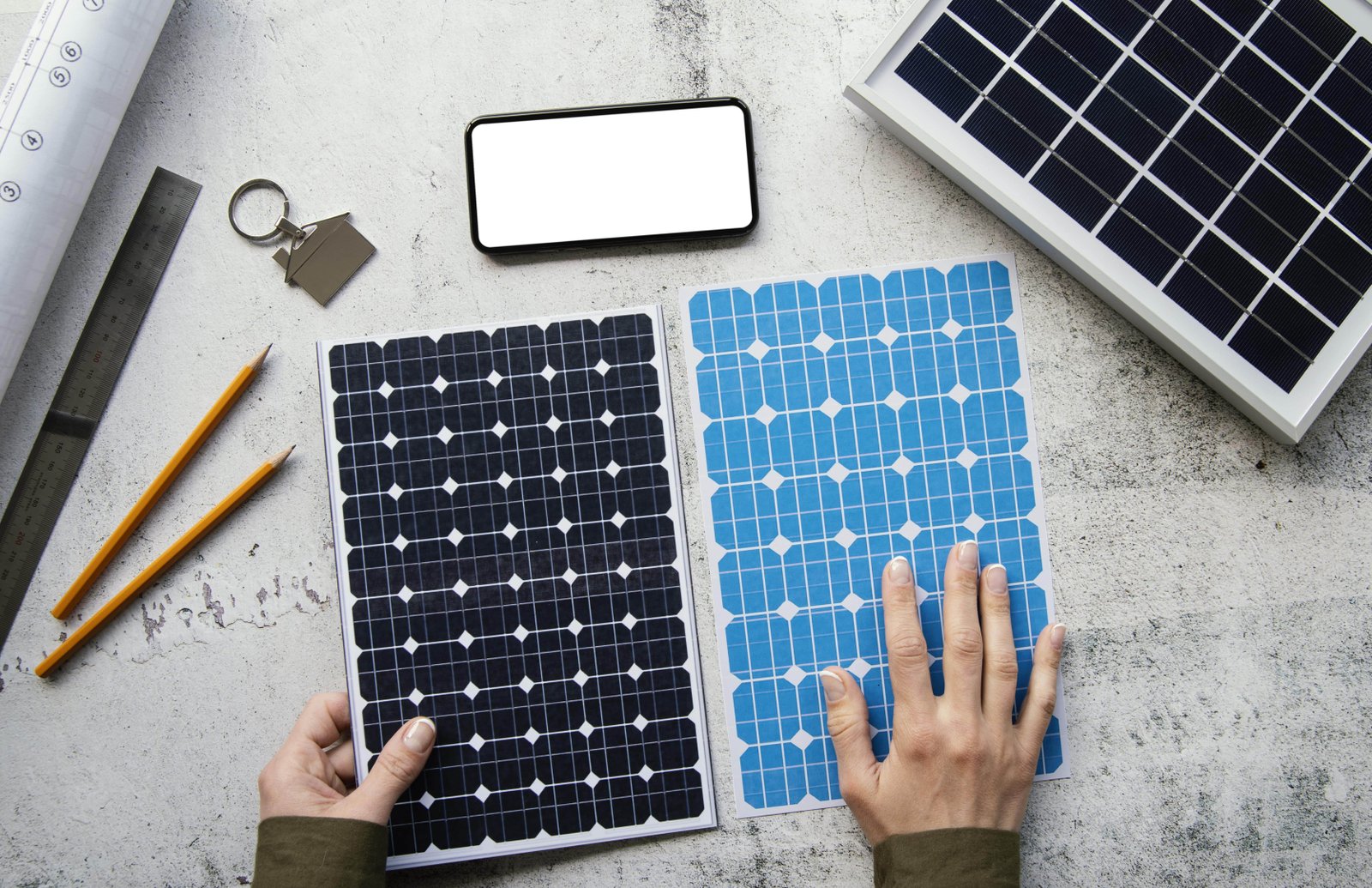How Solar Panels Work: Transforming Sunlight into Clean Energy
This section can explain the basics of how solar panels operate, detailing
the process from sunlight absorption by photovoltaic cells to the conversion of energy into
electricity. March 5, 2023
Solar panels are devices that convert sunlight into electricity, making them a
key player in renewable energy solutions. Composed of photovoltaic cells, they harness the sun's
energy and convert it into direct current (DC) electricity. This DC is then converted to alternating
current (AC) via an inverter, making it usable for homes and businesses. Solar panels are typically
installed on rooftops or open spaces with good sunlight exposure.
The Environmental and Economic Benefits of Solar Panels
Discuss the positive impact of solar panels on both the environment and
personal finances,
including how they help reduce carbon footprints and lower energy bills. March 5, 2023
Solar panels offer significant environmental and economic benefits.
Environmentally, they reduce greenhouse gas emissions by generating clean, renewable energy, helping
to combat climate change. By decreasing reliance on fossil fuels, solar panels contribute to a more
sustainable future. Economically, they lower electricity bills, offering long-term savings for
homeowners and businesses. Many governments also provide incentives and tax rebates, further
reducing the initial investment cost.
Choosing the Right Solar Panel System for Your Home
Provide guidance on selecting the best solar panel system based on factors
like roof space, energy needs, and budget, helping readers make informed decisions.March 5, 2023
Choosing the right solar panel system for your home involves careful
consideration of several factors. First, assess your energy needs by reviewing your electricity
usage and determining how much you want to offset with solar power. Next, evaluate your roof’s
suitability, including its size, orientation, and shading, as these affect the system’s efficiency.
Budget is another critical factor—consider the upfront costs, potential savings, and available
incentives or rebates. Additionally, research different types of solar panels, such as
monocrystalline or polycrystalline, to find the best fit for your needs. Consulting with a
professional installer can help you make an informed decision.


